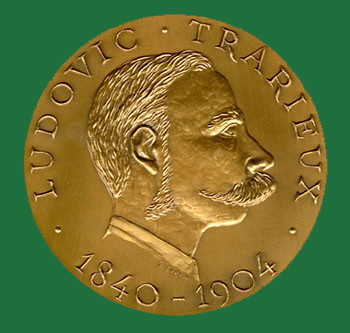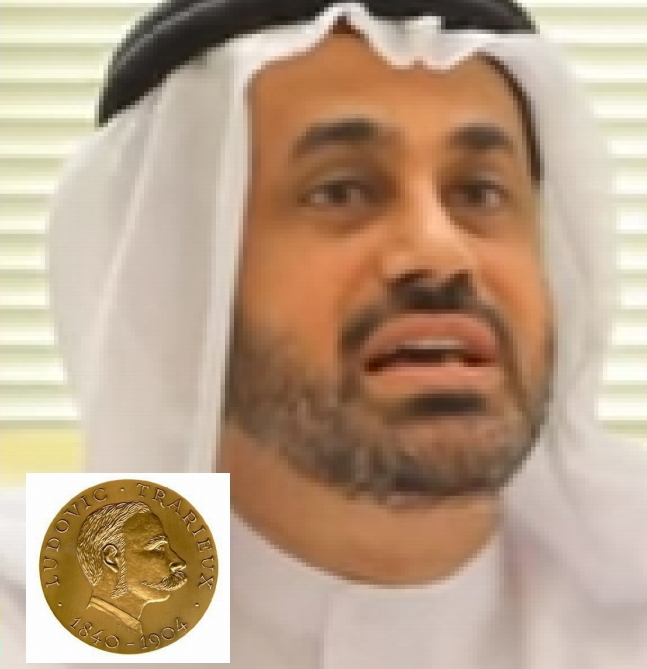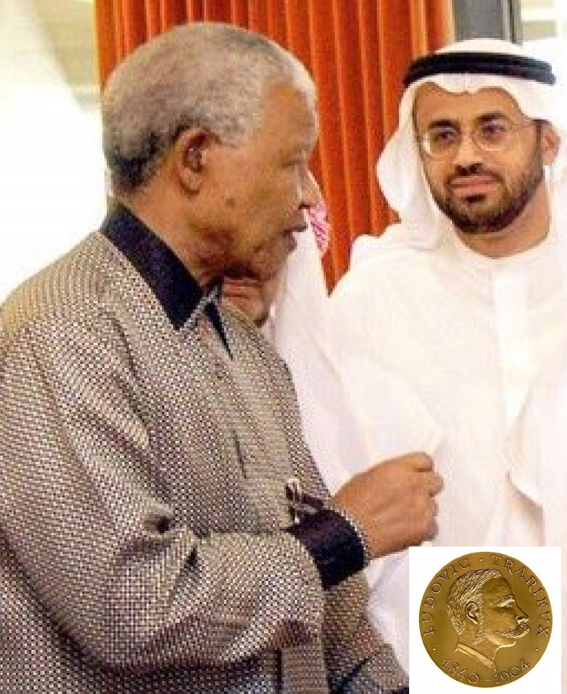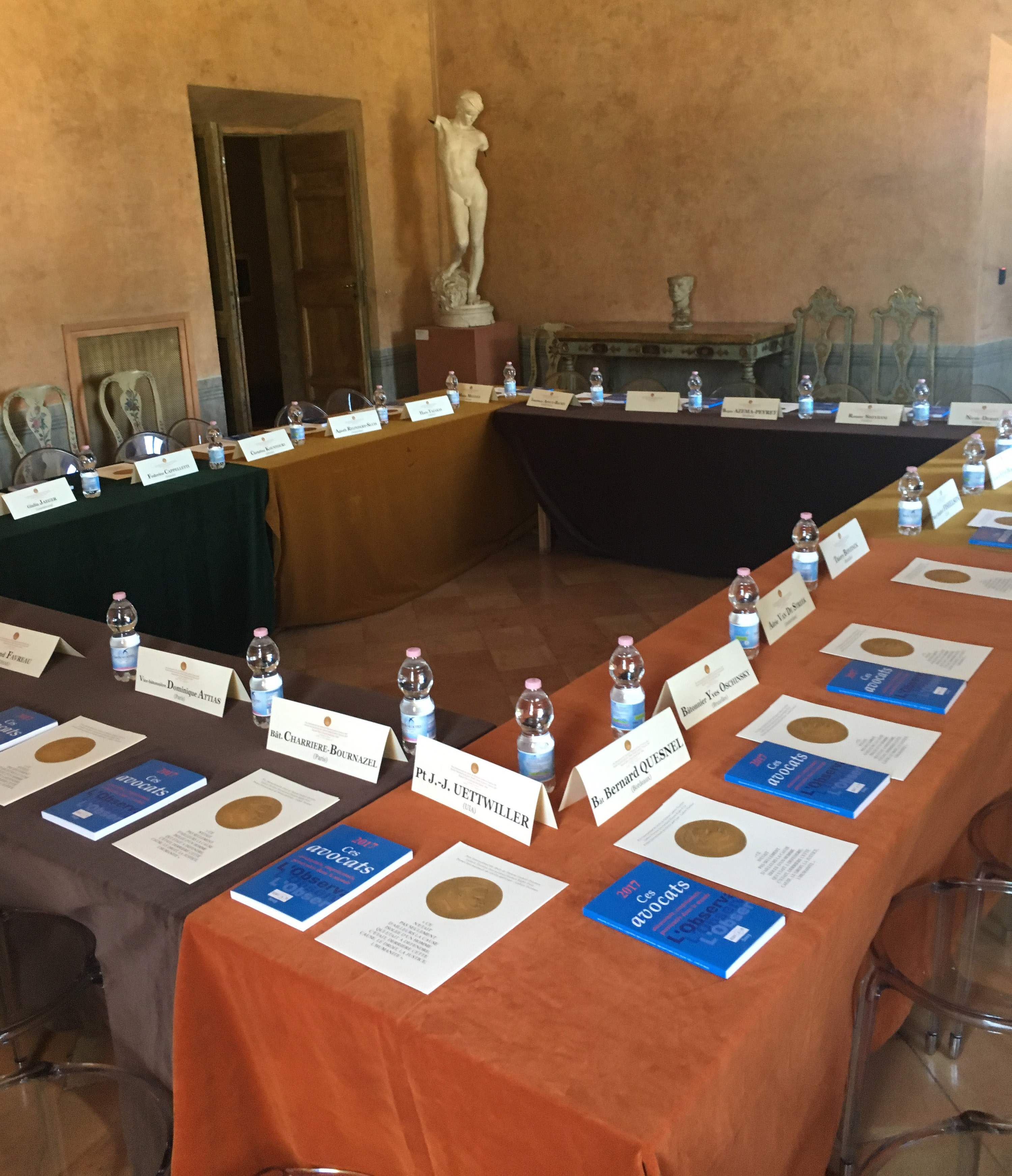
Ludovic-Trarieux
International-Human Rights Prize 2017
Prix
International des Droits de l'Homme Ludovic-Trarieux
2017
Premio Internacional de Derechos Humanos Ludovic Trarieux 2017
Premio Internazionale
per i Diritti Umani Ludovic
Trarieux 2017
Internationalen Ludovic-Trarieux-Menschenrechtspreis 2017
Prêmio Internacional de Direitos Humanos Ludovic Trarieux 2017
Ludovic Trarieux Internationale Mensenrechtenprijs 2017
Since 1984
“The award given by
lawyers to a lawyer”
“L’hommage des avocats à un avocat ”
“El homenaje de abogados
a un abogado ”
“L'omaggio degli
avvocati ad un avvocato”
“Die Hommage von
Anwälten zu einem Anwalt”
« De award
gegeven door advocaten aan een
advocaat »
THE
LUDOVIC-TRARIEUX PRIZE 1985 (PDF)
The XXIInd "Ludovic-Trarieux" Human Rights International Prize 2017
awarded to

Mohammed al-Roken
(United Arab Emirates)
XXIInd
"Ludovic-Trarieux"
Human Rights International Prize 2017
A Jury composed
of 27 european lawyers coming from the bars of Paris,
Bordeaux, Amsterdam, Berlin, Brussels, Geneva, Luxemburg, Roma, Athens, Venice Venezia together with the European Bar Human Rights
Institute (IDHAE) and the Union Internationale des
Avocats (UIA) meeting in Academie
de France, in Villa Medicis in Rome, on May 27th
2017, awarded the 22nd prestigious Ludovic trarieux
Human Rights Prize to lawyer Mohammed al-Roken
(United Arab Emirates).
In
electing Mohammed al-Roken,
the jury wanted to "hail the courage" of a a
leading human rights lawyer who provides legal assistance to victims of human
rights abuses in the UAE, including to fellow human rights defenders. He is
currently serving a ten-year prison sentence as a result of a mass trial of 94
human rights defenders and political activists in the UAE.
32 years after Nelson Mandela Mohammed
al Roken winner of the Ludovic Trarieux
prize 2017

Mohammed Al-Roken, 54, is a leading human rights lawyer who provides
legal assistance to victims of human rights abuses in the UAE, including to
fellow human rights defenders. He was one of the defence
lawyers in last year’s prominent case of five political activists – known as
the ‘UAE 5’–a group of five individuals who were sentenced to between two and
three years’imprisonment for petitioning the
government for legislative reforms in 2011. He also represented the UAE 7, a
group of seven individuals stripped of their citizenship by the government in
2011.
Mohammed Al-Roken was arrested on 17 July 2012 as he drove to a Dubai
police station to report the disappearance five hours earlier of his son Rashid
Mohammed al-Roken and son-in-law ‘Abdullah al-Hajeri. That was a part of a wave of mass arrests that
began in March 2012. The government initiated the campaign of arrests after a
group of prominent activists, including al-Roken,
sent a petition to the president calling for legislative reforms. Security
forces detained him while he was on his way to a police station to report the
disappearance of his son and son-in-law amidst the government’s crackdown.
The day after his arrest,
the UN called on the UAE to guarantee the protection of human rights defenders,
citing al-Roken’s arrest and noting
: “national security is increasingly being used as a pretext to clamp
down on peaceful activism.”
On 27 January 2013, the
attorney general stated that the '94 Emirati suspects’were
accused of "launching, establishing and running an organization seeking to
oppose the basic principles of the UAE system of governance and to seize
power" and "communicating with individuals and international and
foreign entities and establishments based outside the State in order to distort
the image of the State."
On March 4, 2013, the trial
opened in what has become known as the 'UAE 94’case, opened against the 94
people arrested in the government’s mass arrest campaign. Many of the
defendants are believed to be members of the Reform and Social Guidance
Association (al-Islah), a peaceful group that
advocates for greater adherence to Islamic precepts. Al-Islah
has never been known to use or advocate the use of any violence.
On July 2, 2013, the UAE
State Security Court sentenced 68 of the 94 critics for allegedly “plotting to
overthrow the state”. Mohammed al-Roken was sentenced
to 10 years in prison. The mass trial, known as the 94 trial, sparked
condemnation from human rights organizations and the international media alike.
While in detention Mohammed
Al-Roken has been denied several of his basic rights
including access to his lawyer. In addition to this it has been reported that
the authorities have subjected him to psychological intimidation They kept him in solitary confinement without furniture or
personal items, and denied him access to his lawyer.
Mohammed Al-Roken had been an associate professor of public law and
assistant dean of the Faculty of Shari'a and Law at
the U.A.E. National University from 1992 to 2002. He is a noted author of books
and articles on a wide range of legal matters. In the past few years, he has
spoken and written forcefully on human rights issues, especially with respect
to the situation of expatriate workers in the U.A.E. The government has
curtailed his teaching, imposed restrictions on his writing and public
speaking, and has on two occasions in 2006 detained him for questioning about his
human rights activities
In 2008 the UN Special
Representative of the Secretary-General on the situation of human rights
defenders expressed concern at the treatment of Mohammed al-Roken.

Deliberation
Room 2017
MEMBRES DU JURY
2017
(President and
then alphabetic order)
President
Bertrand Favreau
Vice-President Dominique Attias
President
Christian Charriere-Bournazel
President Grégoire Mangeat
President Yves
Oschinsky
President
Bernard Quesnel
President
Pierre Pierre Sculier
President Anton
Giulio Lana
President Jean-Jacques Uettwiller
Brigitte Azema-Peyret
Laurence Azoux-Bacrie
Thierry Bontinck
Federico Cappelletti
Zbigniew Cichon
Nicole Derhy
Carlos Fatás Mosquera
Mary-Daphné Fishelson
Clarissa Freundorfer
Giulia
Jaeger
Christina Kountouri
Fanny Margairaz
Mario Melillo
Agaath S. Reijnders-Sluis
Alessio Sangorgi
Adrie van de Streek
Haris Tagaras
“The
tribute given by lawyers to a lawyer”
Created in 1984, the "International
Human Rights Prize Ludovic -Trarieux” is awarded to
" a lawyer, regardless of nationality or Bar, who thoroughout
his career has illustrated, by his activity or his suffering, the defence of human rights, the promotion of defence rights, the supremacy of law, and the struggle
against racism and intolerance in any form ".
It is the oldest and most prestigious
award given to a lawyer in the world, commemorating the memory of the French
lawyer, Ludovic Trarieux (1840-1904), who in the
midst of the Dreyfus Affair, in France, in 1898, founded the " League for
the Defence of Human Rights and the Citizen ",
because, he said: " It was not only the single cause of a man which was to
be defended, but behind this cause, law, justice, humanity ".
The first Prize was awarded on March
29th, 1985 to Nelson Mandela then in jail. It was officially presented to his
daughter, Zenani Mandela Dlamini,
on April 27th 1985, in front of forty presidents of Bars and Law Societies from
Europe and Africa. It was the first award given to Mandela in France and the
first around the world given by lawyers. On February 11th 1990, Nelson Mandela
was released. Since then, it was decided that the Prize would be awarded again.
Since 2003, the Prize is awarded every
year in partnership by the Human Rights Institute of The Bar of Bordeaux, the
Human Rights Institute of the Bar of Paris, the Human Rights Institute of The
Bar of Brussels, l'Unione forense
per la tutela dei diritti dell'uomo (Roma), Rechtsanwaltskammer Berlin, the Bar of Luxemburg, the Bar
of Geneva, the Bar of Amsterdam as well as the Union Internationale
des Avocats (UIA), and the European Bar Human Rights Institute (IDHAE) whose
members are the biggest european law societies
fighting for human rights. It is presented every year in a city that is home to
one of the member Institutes.
1985: Nelson MANDELA (South Africa)
1992: Augusto ZÚÑIGA PAZ (Peru) †
1994: Jadranka
CIGELJ (Bosnia-Herzegovina)
1996 Nejib HOSNI (Tunisia) and Dalila MEZIANE
(Algeria).
1998 ZHOU Guoqiang
(China)
2000 Esber
YAGMURDERELI (Turkey)
2002 Mehrangiz KAR (Iran)
2003 Digna OCHOA and Bárbara ZAMORA (Mexico)
2004: Akhtam NAISSE (Syria)
2005: Henri BURIN DES ROZIERS (Brazil)
2006: Parvez IMROZ (India)
2007 : René GÓMEZ MANZANO (Cuba)
2008 : U AYE MYINT (Burma)
2009 : Beatrice MTETWA (Zimbabwe)
2010 : Karinna
MOSKALENKO (Russia)
2011 : Fethi TERBIL
(Libya)
2012 : Muharrem
ERBEY (Turkey)
2013 : Vadim KURAMSHIN (Kazakhstan)
2014 : Mahienour
el-MASSRY (Egypt)
2015 : Waleed Abu al-KHAIR (Saudi Arabia)
2016: WANG Yu (China)